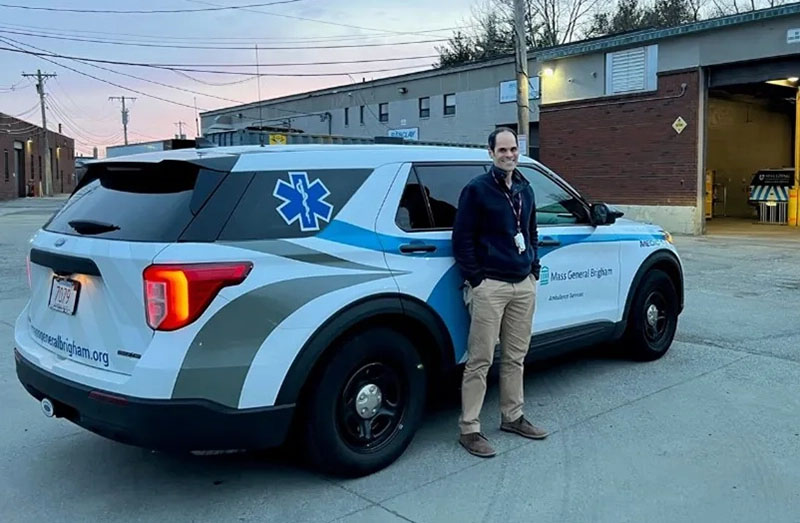-
- Find Care
-
- Visitor Information
- Find a Location
- Shuttles
- Visitor Policies
-
-
- Our Virtual Care Options
- Virtual Urgent Care
- Virtual Visits for Primary & Specialty Care
- Online Second Opinions
- Participate in Research
-
- Contact us
-
- For Innovators
- Commercialization Guide for Innovators
-
-
- Research News
- Alzheimer's Disease
- Artificial Intelligence
-
- Overview
-
- Overview
- Getting Started
- New to Mass General Brigham
- International Patient Services
- What Is Patient Gateway?
- Planning Your Visit
- Find a Doctor (opens link in new tab)
- Appointments
- Patient Resources
- Health & Wellness
- Flu, COVID-19, & RSV
- Billing & Insurance
- Financial Assistance
- Medicare and MassHealth ACOs
- Participate in Research
- Educational Resources
- Visitor Information
- Find a Location
- Shuttles
- Visitor Policies
- Find Care
-
- Overview
- Our Virtual Care Options
- Virtual Urgent Care
- Virtual Visits for Primary & Specialty Care
- Online Second Opinions
-
- Overview
- Participate in Research
-
- Overview
- About Innovation
- About
- Team
- News
- For Industry
- Venture Capital and Investments
- World Medical Innovation Forum (opens link in new tab)
- Featured Licensing Opportunities
- For Innovators
- Commercialization Guide for Innovators
- Contact us
-
- Overview
- Information for Researchers
- Compliance Office
- Research Cores
- Clinical Trials
- Advisory Services
- Featured Research
- Two Centuries of Breakthroughs
- Advances in Motion (opens link in new tab)
- Brigham on a Mission (opens link in new tab)
- Gene and Cell Therapy Institute
- Research News
- Alzheimer's Disease
- Artificial Intelligence
-
- Overview
-
- Overview
- Residency & fellowship programs
- Brigham and Women's Hospital
- Massachusetts General Hospital
- Mass Eye and Ear
- Newton-Wellesley Hospital
- Salem Hospital
- Integrated Mass General Brigham Programs
- Centers of Expertise
- Global & Community Health
- Health Policy & Management
- Healthcare Quality & Patient Safey
- Medical Education
- For trainees
- Prospective trainees
- Incoming trainees
- Current trainees
- Continuing Professional Development
- About Us
- Careers
- Careers at the System
- Healthcare at Home
- A Day in the Life of Home Hospital Paramedic Derek Guanaga, BA, MPH, NRP
Mass General Brigham’s Home Hospital provides acute inpatient-level care in the home and helps to ensure better health outcomes and shorter length of stay for eligible patients. Paramedic Derek Guanaga, BA, MPH, NRP, who is also a nursing student, recently shared details about a typical day in his role as a Home Hospital paramedic.
7 a.m.
11 a.m.
The first patient visit is at a public housing apartment building Derek has visited before. In a given day, patients’ homes can run the gamut from exclusive Back Bay addresses to public housing in Boston and surrounding towns. No matter, Derek’s approach is the same. This is a cheerful but small two-room apartment. A cat is snoozing happily on the bed. The patient is recovering from surgery a week earlier but not breathing well. Her doctor is concerned. Derek does a series of diagnostic tests, including onsite lab tests with comprehensive results that print out in minutes from his portable Piccolo Xpress blood chemistry analyzer. After a thorough physical exam, Derek sets up a video call with the Emergency Department physician. Ultimately, Derek and the physician determine the patient does not need further care. She will be discharged. The commute to the next location is just 15 minutes, but there isn’t time to waste since the previous visit took a little longer than expected. Meanwhile, Derek’s phone continues to ping with the familiar sound of information arriving via Microsoft Teams. There’s just enough time to review notes in Epic from the Home Hospital clinicians who visited the next patient earlier in the day.
1:30 p.m.
The next patient sees multiple clinicians every day, as part of the Home Hospital service. She will need her vitals checked and IV line flushed, in addition to an infusion, which is the main purpose of the visit. The equipment and antibiotic Derek will need have already been delivered to the patient’s house. This visit takes about an hour before we travel to the next patient, who is a 40-minute drive away.
4 p.m.
Derek’s last patient of the day is a 97-year-old woman. MIH is here to evaluate her after abnormal lab results came back from an earlier visit with her PCP. Her doctor may require treatment in a hospital facility, but she and her family are hoping she can stay home. Despite her age and current condition, she is thoroughly lucid and on top of her medical condition and care. Later, she will learn in her call with Derek and the physician that she will have to go to Massachusetts General Hospital for treatment and care she can’t get at home. Derek quietly talks with her while we wait for ambulance transport to arrive.
6:30 p.m.
It’s a 30-minute drive back to the garage. The day isn’t over for this paramedic. Derek will write up his notes from all three patients before going home for his first meal of the day. He is matter of fact when noting that it’s now dark outside and past the end of his shift – it’s all part of taking care of the patients to whom he has dedicated his career of more than 20 years.
“I think the luxury of having Mobile Integrated Health and using paramedics in this way as part of Mass General Brigham Healthcare at Home affords that opportunity for us to put a paramedic into someone’s home who can give us the eyes, the ears, the all the senses for the physician or any advanced practice provider to extend their reach and keep patients at home, where possible,” he said. “With Home Hospital, patients are more at ease because they’re able to stay in the comfort of their own homes. Also, because we have so much more time to sit there and talk to the patient and educate them, and better understand their circumstances, it can be little bit more impactful for providers as opposed to the hospital setting.”

